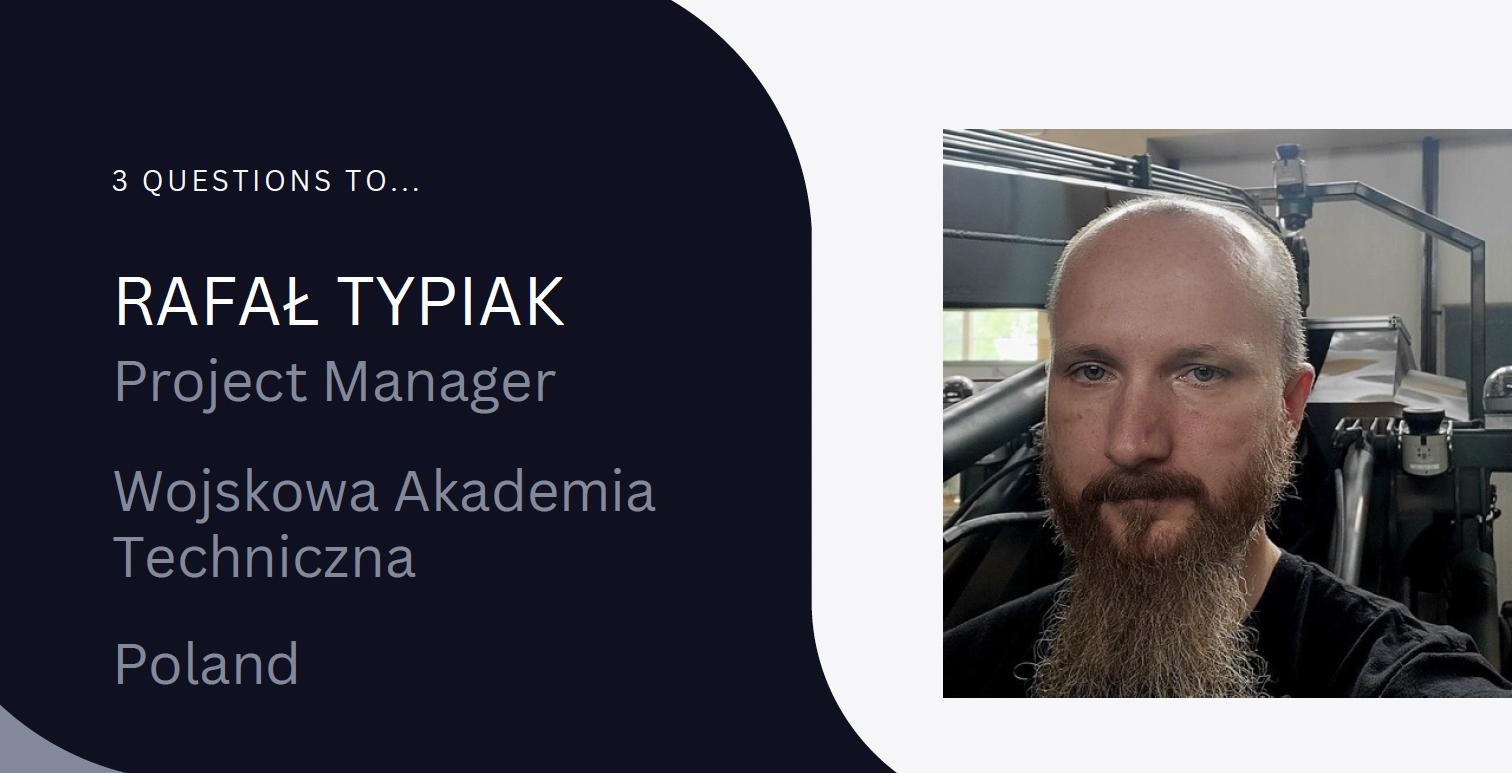3 questions to Rafał Typiak from Wojskowa Akademia Techniczna
19.09.2024
We asked 3 questions to Rafał Typiak from Wojskowa Akademia Techniczna (Poland)
Why did your company get involved in the COMMANDS?
Wojskowa Akademia Techniczna is tasked by the Polish Ministry of Defence (MoD) with developing new solutions, which help in keeping our country and its population safe from different types of threats. COMMANDS scope fits this mission ideally. I believe that the Project’s outputs will serve as a significant steppingstone towards introducing unmanned ground assets into high-intensity mission operations, thus potentially saving lives of Polish military personnel. This notion was mirrored by our MoD, as they’ve greenlit our involvement during the call phase. Of note is also the fact that Wojskowa Akademia Techniczna’s mission is to continuously strive to push the technological envelope of what’s possible. COMMANDS is a cutting-edge concept merging a whole slew of disruptive technologies. It was a no-brainer.
What is your specific role in the project?
I’m the COMMANDS project manager within Wojskowa Akademia Techniczna, so my main task is to synchronize Wojskowa Akademia Techniczna’s outputs with COMMANDS expectations and requirements. There’s also a large amount of additional administrative tasks that accompany this position, but that’s nothing to write home about. It’s just stuff that needs to be done. The more exciting part comes from the fact that I’m a researcher by trade and by heart. I live to build stuff and here, COMMANDS does not disappoint! I’m tackling topics of developing control systems for manned and unmanned vehicles as well as sensor driven driver assistance modules and remote operations in case human input is not available.
How do you see the added value of COMMANDS for the European armed forces?
Having a convoy being able to carry out manned missions with a higher degree of safety is always a step in the right direction. Now, having the same convoy capable of completing its mission even if some of its manned elements had to be operated remotely or autonomously is crucial in maintaining frontline forces’ fighting capabilities. I believe it to be a fundamental capability. Especially now. One needs to keep in mind the fact, that endeavours like these allow certain technologies to mature and find new homes. Say in combat equipment.